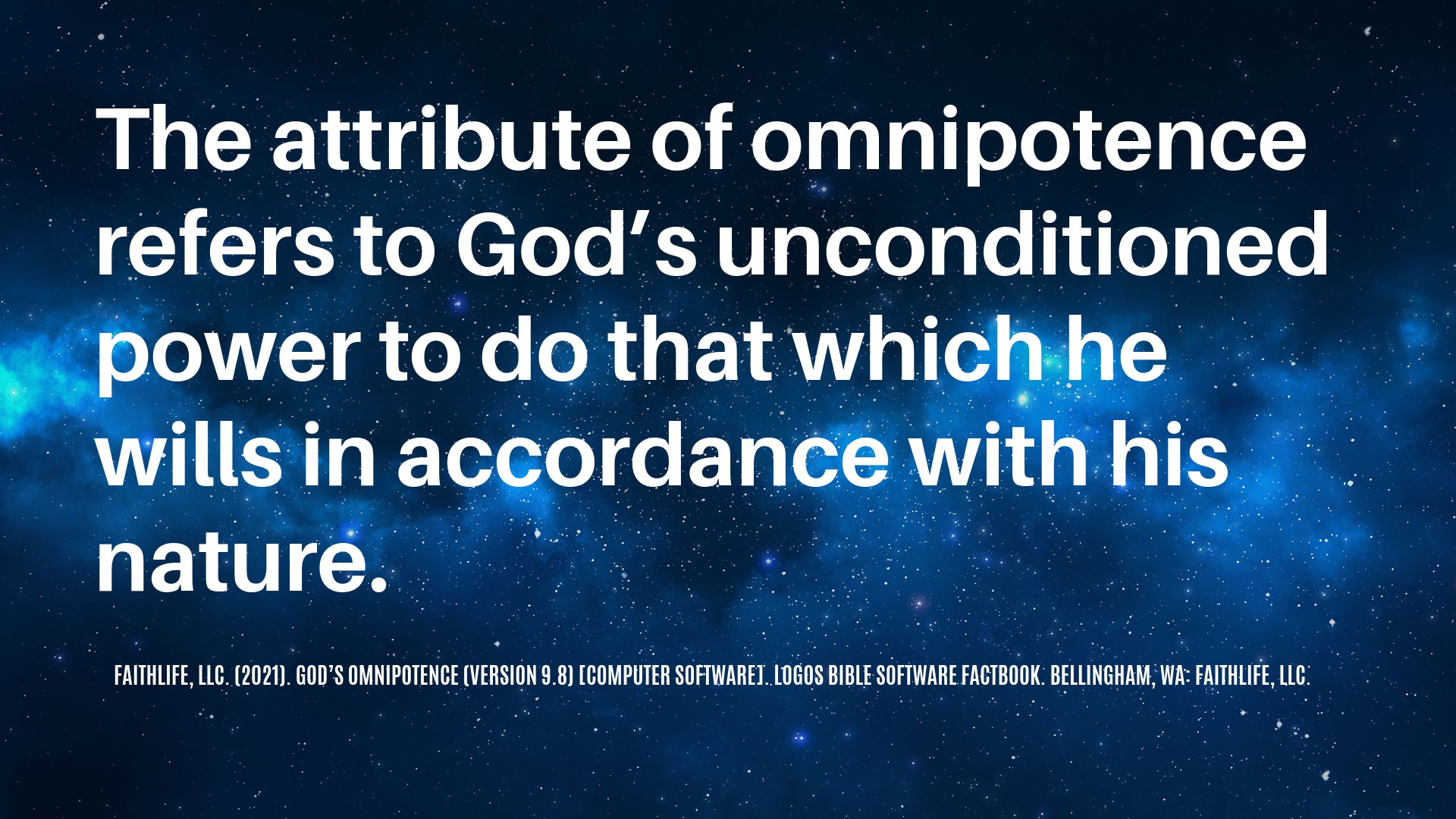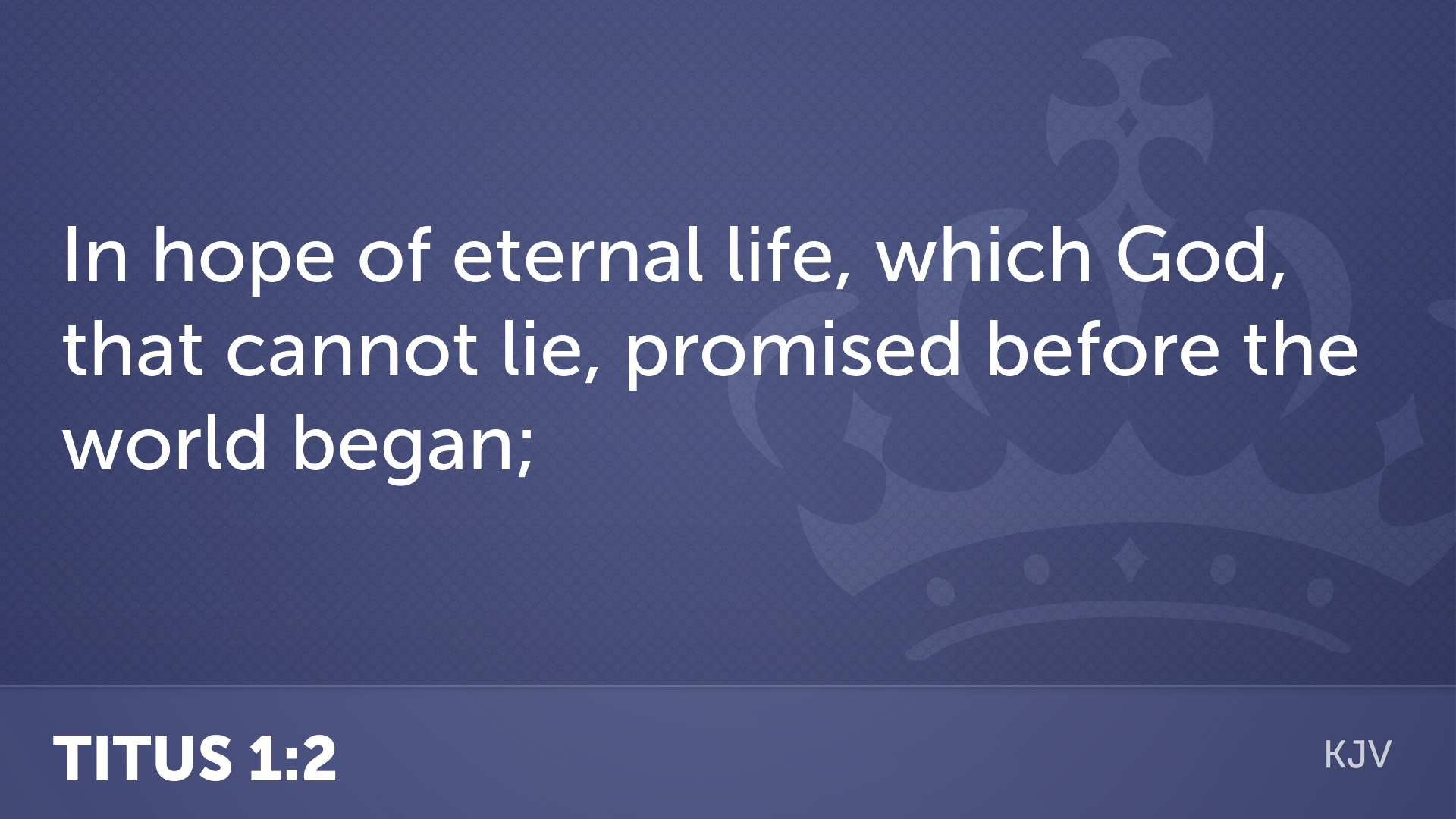One of the defining attributes of God is His omnipotence. Today we will consider what this means for us as believers.
The Implications of Omnipotence
The fact that God is all-powerful means that definitionally He is the most powerful being in existence. A corollary to this is that God is entirely self-sufficient. He is not dependent on any other being for His existence. He is uncreated. He alone holds that distinction. Every other being that has ever existed is a creature. Only He is the Creator.

God's omnipotence means that He is able to do whatsoever He wills to do. There is never any question about God's ability to do something. This should be a great comfort to Christians when we pray, for we know that He is able to meet our needs in ways beyond our greatest imaginings.

We know that God is omnipotent through a variety of evidences. J.P. Boyce provides us the following list of reasons why we ascribe power to God 1 :
- Because we perceive that its possession is a perfection in us, and is therefore to be attributed to the all-perfect being.
- Because we cannot account for the existence and phenomena of the universe without ascribing to God the power which has produced them.
- Because our own sense of dependence assures us that there must be power to create, preserve, and protect us, in him in whom we live and move and have our being.
- The Scriptures also teach us to ascribe power to God.
(a) In such passages as directly ascribe power to him: Jer. 32:17; Ps. 115:3; Eph. 1:19; Eph. 3:20.
(b) By reference to his unlimited works: Jer. 10:12; John 1:3; Acts 17:24.
(c) By declaring that what he does is done by mere will without labour, by his word; as in the whole account of creation in the beginning of Genesis and in Ps. 33:9.
(d) By denying the necessity of great means and asserting that what he does can be done with the many or the few: 1 Sam. 14:6; 2 Chron. 14:11.
(e) By figurative or anthropomorphic expressions, as “the hand,” “the right hand of God,” “the strong hand,” “the arm,” “the arm not shortened.” Ex. 15:6; Num. 11:23; Joshua 4:24; Neh. 1:10; Job 40:9; Ps. 98:1; Isa. 50:2; Isa. 59:1.
We should take a moment to address the fact that there are some things which Scripture tells us God "cannot do". We should understand that it is not because of a lack of ability that Scripture tells us God cannot do something. Rather it is because He does not and never would will to do it because it is contrary to His nature.

There are things that Scripture says God is unable to do because they would contradict his character or revealed will: repent (like a man) or lie (Num. 23:19; 1 Sam. 15:29; Heb. 6:18); deny himself (2 Tim. 2:13); be tempted (so that he succumbs) (James 1:13); or change in his essence, purposes, or promises (James 1:17; Mal. 3:6). 2
- John MacArthur
Knowing that we have an infinitely powerful God who is not limited in any way, yet is perfectly good and holy and will always act in accordance to His nature, is the basis for our confidence in His promises to us as Christians. We hope this reflection on the omnipotence of God is a comfort and a joy to you this day.
Charles Spurgeon - Omnipotence Video
Footnotes
1. Boyce, J. P. (1887). Abstract of Systematic Theology (pp. 83–84). Bellingham, WA: Logos Bible Software. (2010)
2. MacArthur, J., & Mayhue, R. (Eds.). (2017). Biblical Doctrine: A Systematic Summary of Bible Truth (p. 178). Wheaton, IL: Crossway.





Join the conversation